In Hinduism, Daan, derived from the Sanskrit word 'dāna,' meaning selfless giving, is a fundamental aspect of one's dharma, or religious duty. This practice emphasizes charity and donations, fostering compassion and societal well-being. Engaging in Daan is believed to purify the soul, build positive karma, and advance one's spiritual journey. The Rigveda highlights the guilt associated with not aiding those in need, underscoring the importance of generosity. Notable figures like Karna from the Mahabharata are celebrated for their unwavering commitment to charity, embodying the virtues of selfless giving.
Scriptural References
The Bhagavad Gita, one of the most revered texts in Hindu philosophy, highlights the importance of selfless giving:
Sanskrit:
'दानं हि दैविकं प्रोक्तं स्वधर्मेण समाहितम्। तस्यैषा भगवतीं शान्तिं यो हि दानं आचरेत्।।'
Translation:
'Donation is considered divine when it is done in accordance with one's dharma, with a mind focused on righteousness. Those who engage in this selfless act are blessed with peace by the Supreme.'
This verse underscores that Daan should be performed with sincerity, without attachment, and in alignment with one’s spiritual path.
The Manusmriti (3.146) also elaborates on the significance of giving:
Sanskrit:
'यस्तु दानं प्रवर्तते सदा धर्मेण सह ध्यानम्। स तु कर्मफलं प्राप्ति जीवनप्राप्तिं मोक्षदा।।'
Translation:
'One who continuously gives, in conjunction with dharma and meditation, will attain the ultimate reward of liberation, transcending the cycles of birth and death.'
This shows that Daan is not merely an act of charity but a path to spiritual elevation, cultivating both worldly harmony and divine peace. Thus, Daan in Hinduism is seen as a virtuous, divine practice essential to personal growth and cosmic balance.
Famous Stories of Daan (Donation)
In Hindu tradition, Daan (selfless giving) is not only an important spiritual practice but also a symbol of righteousness, often highlighted in various mythological and historical stories. These tales exemplify the virtues of generosity and selflessness, portraying their profound impact on individuals and society. Below are some famous stories that showcase the significance of Daan:
Karna's Daan
One of the most iconic stories of Daan comes from the Mahabharata. Karna, a great warrior and friend of Duryodhana, is renowned for his generosity. Despite his wealth and power, Karna is known for giving away his possessions and even his Divine armor. The most famous instance is when Lord Indra, disguised as a Brahmin, asked for Karna’s divine armor and earrings, which had been granted to him at birth. Karna, despite knowing the Brahmin’s true identity, gave them away without hesitation. This act of supreme selflessness is remembered as one of the most noble examples of Daan in Hindu mythology.
King Bali and His Gift
King Bali, a demon king, is another legendary figure known for his generosity. In the Vamana Purana, Lord Vishnu incarnated as the dwarf Brahmin Vamana and approached King Bali, who was performing a grand yajna (sacrifice). Vamana asked for three paces of land. Bali, despite the advice of his own ministers, offered the land without any doubt. Vamana, in his divine form, then expanded to cover the three worlds in three strides, sending Bali to the underworld. However, impressed by Bali’s unwavering generosity, Lord Vishnu granted him the right to visit his kingdom once a year. This act of Daan symbolizes the importance of selflessness, even in the face of adversity.
Emperor Harsha’s Charitable Acts
Emperor Harsha, a renowned ruler of ancient India, is famed for his generosity. Known for his devotion to Buddhism and his immense charitable acts, Harsha is said to have organized large-scale distribution of wealth, food, and provisions to the poor, particularly during his reign in northern India. According to historical accounts, he even gave away his personal treasures to the citizens, ensuring that no one in his kingdom went hungry. His reign is considered a golden period due to his focus on charity and welfare, exemplifying the power of Daan in governance.
Vishnu's Blessings for King Shibi
King Shibi of ancient India is a classic example of selfless giving. In the Mahabharata, King Shibi was tested by the gods when they appeared as a dove and a hawk. The hawk sought refuge from the king, claiming that the dove was its prey. To save the dove, King Shibi promised to sacrifice his own flesh, as the dove was innocent. The gods, impressed by his dedication to righteousness and justice, revealed their true identities and blessed King Shibi with eternal glory. His story is a testimony to the concept of giving even when faced with personal sacrifice.
Raja Harishchandra
King Harishchandra, known for his unwavering commitment to truth and justice, is another example of generosity. When he was tested by the sage Vishwamitra, Harishchandra was forced to give away everything he had, including his kingdom, wealth, and even his family. His commitment to truth led him to sell himself and his wife into servitude. Despite his hardships, Harishchandra never compromised on his principles, illustrating the idea that true giving is grounded in selflessness and adherence to righteousness.
The Story of Sudama
Sudama, a poor Brahmin and friend of Lord Krishna, is often cited as an example of humility and the rewards of unselfish giving. When Sudama visited Krishna’s palace in his destitute state, he did not ask for anything but instead gave Krishna a handful of beaten rice as a token of his love. Krishna, recognizing the purity of Sudama’s heart, instantly transformed his life, granting him immense wealth. Sudama’s story emphasizes that even small acts of charity, when done with love and devotion, carry immense spiritual significance.
Ganga's Daan to King Shantanu
In the Mahabharata, the story of Ganga giving birth to Bhishma and then later relinquishing him to King Shantanu is another example of selflessness. Ganga, as the divine river goddess, gave up her son to ensure that her divine purpose could be fulfilled. The act of Ganga's Daan symbolizes that giving is often a sacrifice that leads to a higher purpose and spiritual enlightenment.
Dharmaraja Yudhishthira’s Generosity
Yudhishthira, the eldest of the Pandavas in the Mahabharata, is another great example of Daan. Known for his piety and righteousness, Yudhishthira frequently gave away his possessions to those in need, often as a part of religious rituals. His generosity was not only material but extended to his wisdom, leadership, and ethical conduct. Yudhishthira's life exemplifies that true generosity encompasses both material and moral wealth.
These stories from Hindu mythology and history not only reflect the importance of Daan in enriching the lives of others but also highlight that selfless giving is an essential virtue for spiritual growth and societal harmony. Whether through the sacrifices of legendary figures like Karna and King Bali or the noble acts of historical rulers like Emperor Harsha and King Shibi, these tales inspire individuals to give without expectation, thereby fostering compassion and righteousness in the world.
Significance of Daan
In Hindu philosophy, Daan (दान), or the practice of selfless giving, is considered a highly significant spiritual and moral virtue. It is an essential component of Dharma (righteousness) and is believed to purify the soul, increase good karma, and facilitate spiritual progress.
Various Hindu scriptures, including the Manusmriti, Bhagavad Gita, Bhavishya Purana, and Skanda Purana, underscore the profound significance of Daan and provide guidance on how to practice it in a way that benefits both the giver and the recipient.
Below is a detailed exploration of the significance of Daan in these texts:
Manusmriti (3.146)
The Manusmriti, a foundational text of Hindu law and ethics, discusses the concept of Daan as an essential practice for maintaining social order and fulfilling one’s duties. It emphasizes that giving should be done in a way that aligns with Dharma (righteousness) and Artha (material prosperity), ensuring that the welfare of both individuals and the community is upheld.
Sanskrit (Manusmriti 3.146):
'यस्तु दानं प्रवर्तते सदा धर्मेण सह ध्यानम्। स तु कर्मफलं प्राप्ति जीवनप्राप्तिं मोक्षदा।।'
Translation:
'One who continuously gives, in conjunction with dharma and meditation, will attain the ultimate reward of liberation, transcending the cycles of birth and death.'
Here, the Manusmriti highlights that Daan, when performed in harmony with righteous conduct and spiritual meditation, leads to moksha (liberation) and the purification of one’s soul. This passage underscores the transformative power of selfless giving, which can lead to ultimate freedom.
Bhagavad Gita (17.20-22)
In the Bhagavad Gita, Lord Krishna discusses the three types of giving—Sattvic, Rajasik, and Tamasik—which depend on the mental attitude with which one gives. The Bhagavad Gita teaches that giving should be done with purity, devotion, and without expectation of reward.
Sanskrit (Bhagavad Gita 17.20-22):
'दानं तामसमा जानी यत्तु कालवशाद्रुतम्। तत्परं कर्म कर्तव्यं सत्विकं दानमुत्तमं।।'
Translation:
'Giving that is done with a sense of duty, without expectation of return, and in the right time and place, is considered Sattvic (pure) giving. On the other hand, giving driven by selfish desires is Rajasik, and giving done out of ignorance or fear is Tamasik.'
In these verses, Krishna emphasizes that Daan should be done with the right intention and without attachment to the outcome. Sattvic Daan (the highest form of giving) involves donating with purity of heart, without any desire for personal gain or recognition. This type of giving helps to develop good karma and spiritual growth.
Bhavishya Purana
The Bhavishya Purana, an ancient text that foretells future events and emphasizes the importance of righteous living, also praises the virtue of Daan. It stresses that giving to those in need, especially the poor and the hungry, not only improves one's spiritual state but also brings divine blessings.
Sanskrit (Bhavishya Purana):
'य: पश्यति समृद्धिं य: सन्मार्गे च पश्यति। न वेद राजा कश्चिन्मुखं प्राप्य करिष्यति।।'
Translation:
'He who sees the welfare of others and gives to them, following the path of virtue, will be blessed by the divine. No king, however wealthy, can attain the divine fruit without giving.'
The Bhavishya Purana emphasizes that true prosperity is not in material wealth, but in the act of selfless giving. It teaches that Daan is a key to receiving divine blessings and spiritual growth, indicating its transformative power in both material and spiritual realms.
Skanda Purana
The Skanda Purana, one of the largest and most important of the eighteen Mahāpurāṇas, extensively discusses the significance of Daan in fostering both individual and societal welfare. The Skanda Purana elaborates on various types of Daan and their respective benefits. Among the most significant is the giving of food, which is considered one of the highest forms of charity in Hinduism.
Sanskrit (Skanda Purana):
'दानं धर्मेण युक्तं च मनसा सदा निश्चलम्। सर्वपापेभ्यो मुक्तं पुण्यं प्राप्येति हि जीवति।।'
Translation:
'One who gives selflessly, with a mind fixed on righteousness, remains free from all sins and attains great merit. Such a person lives a life of purity and ultimately attains liberation.'
In the Skanda Purana, it is stated that Daan, when performed with devotion and purity, cleanses the giver from all sins, allowing them to live a virtuous life and achieve moksha (spiritual liberation). The Puranic texts emphasize that Daan is a powerful tool for both personal purification and for the betterment of society as a whole.
These ancient scriptures; Manusmriti, Bhagavad Gita, Bhavishya Purana, and Skanda Purana, place great emphasis on Daan as an essential practice that fosters spiritual growth, ethical behavior, and societal harmony. The act of giving, when performed with the right intention and in alignment with Dharma, purifies the heart, attracts divine blessings, and leads one closer to the ultimate goal of moksha. Daan is not merely an act of charity but a profound spiritual discipline that nurtures compassion, selflessness, and righteousness.
6 Types of Daan
The famous sage Narada, a key figure in many Puranic texts, further elaborates on the nuances of Daan by classifying it into six distinct types based on the motive or purpose behind the act. These classifications provide insight into the various ways in which people engage in giving, reflecting the multifaceted nature of generosity in Hindu philosophy. Below is a detailed exploration of the six types of Daan:
Dharma Daan (Virtuous Giving)
Dharma Daan refers to the act of giving that is motivated by the desire to uphold righteousness (Dharma) and virtuous principles. It is considered the purest form of Daan, as it is performed with no selfish motive, simply for the sake of moral duty. In this type of giving, the donor’s intention is to align with Dharma—upholding justice, moral integrity, and the welfare of society.
- Example: One might donate to a temple, a charity, or to help the needy because it is their duty to support righteousness and moral conduct in the community.
- Spiritual Significance: Dharma Daan is believed to purify the heart and mind, cultivate good karma, and advance one on the path of spiritual liberation (moksha). It strengthens one's commitment to dharmic living and social responsibility.
Artha Daan (Material or Utility-Based Giving)
Artha Daan is the act of giving for a practical or material purpose. This type of Daan is primarily focused on providing something useful to the recipient. The intention behind Artha Daan is not necessarily spiritual but rather to fulfill a need or utility, such as helping someone start a business or supporting someone in a financial crisis.
- Example: A person might donate money or resources to help a family member with a business investment, assist someone in buying a house, or help a student afford their education.
- Spiritual Significance: While Artha Daan may be more pragmatic, it still contributes to the social welfare of others, and such acts of giving are believed to generate positive karma that can lead to material prosperity in the future.
Kaama Daan (Giving for a Favor or Desire)
Kaama Daan involves giving motivated by personal desire, particularly in the context of a favor to a woman or a loved one. This form of giving is linked to fulfilling personal needs, desires, or attachments, and it is often performed to gain the favor of a person, typically in the pursuit of affection, relationship, or worldly enjoyment.
- Example: A man may give gifts to a woman in hopes of gaining her affection or goodwill. Similarly, this could apply to any relationship where one gives in hopes of receiving something in return.
- Spiritual Significance: While Kaama Daan may not always align with the highest spiritual ideals of selfless giving, it can still be seen as a form of generosity that nurtures relationships. However, when done excessively or with selfish motives, it could contribute to attachment, which may hinder spiritual growth.
Laaja Daan (Compulsory or Coerced Giving)
Laaja Daan is a form of giving that arises out of compulsion, either due to societal expectations or external pressures. In this case, the giver does not act out of a pure desire to help but rather because they are forced to do so or fear social stigma. This could involve giving as part of a tradition, or in response to peer pressure, where the giver may not genuinely wish to part with their possessions but does so to maintain social respectability.
- Example: A person may donate to a charitable cause because it is expected of them in their social circle, or because they are following a tradition, rather than from an inner desire to give.
- Spiritual Significance: Although Laaja Daan may lack the purity of intention seen in other forms of giving, it is still considered an important act. The act of giving under compulsion may not bring the same spiritual rewards as Dharma Daan, but it still contributes to the social good and can help overcome feelings of possessiveness or ego.
Harsha Daan (Giving Out of Happiness or Joy)
Harsha Daan refers to the act of giving when the giver is in a state of happiness or after receiving good news. It is the expression of joy and gratitude, and is often associated with celebrations, festivals, or positive life events. People are more likely to share their happiness and wealth when they are content or experiencing success, as a way of spreading joy and good fortune.
- Example: A person might donate a portion of their earnings after receiving a promotion at work, or during festive times like Diwali, when there is a collective mood of celebration and joy.
- Spiritual Significance: Harsha Daan is considered a positive and beneficial form of giving. It reflects the giver’s gratitude and joy, which can amplify the good karma generated. This form of giving is seen as uplifting both the giver and the recipient, as it stems from a heart full of happiness and positivity.
Bhaya Daan (Giving Out of Fear or to Avoid Risk)
Bhaya Daan occurs when the giver donates out of fear or to avoid potential harm, risk, or punishment. This form of giving may arise when a person fears the wrath of the gods, social consequences, or when trying to avoid a curse or misfortune. While this form of giving may not be motivated by altruism, it is still a form of charity.
- Example: A person might donate to a temple or to a priest as a means of appeasing the gods or warding off negative outcomes, such as a bad omen or an impending disaster.
- Spiritual Significance: Bhaya Daan is viewed as a form of giving that stems from fear rather than genuine compassion. While it may bring immediate benefits, such as protection or relief from fear, it does not carry the same spiritual weight or purity as giving done with a sincere heart. However, it may still help mitigate negative karmic effects.
Narada's classification of Daan into six types shows that motivations for giving range from virtuous to pragmatic, with each type playing a unique role in spiritual and social life. Dharma Daan is the highest, representing selflessness and spiritual growth. While other forms of giving fulfill desires or respond to external pressures, they still contribute to the welfare of both giver and receiver, fostering good karma and spiritual progress.
Book Now Cow Donation (gau dan)
Ann Daan (अन्न दान)
Ann Daan, or the donation of food, is one of the most important and selfless acts of charity in Hinduism. Food is considered a primary necessity for survival, and providing food to the hungry is believed to be a highly meritorious act. Ann Daan is especially significant during festivals, religious rituals, and community gatherings.
Significance:
Giving food to the hungry purifies the giver's heart and ensures that they are blessed with material abundance. Ann Daan is said to remove obstacles, bring happiness, and accumulate good karma. In some texts, it is suggested that this form of giving can even help in attaining moksha (spiritual liberation).
Book Ann Daan (Food Donation)
Jal Daan (जल दान)
Jal Daan refers to the donation of water, which is a vital element for life and is considered purifying in Hindu rituals. Water is offered to the thirsty, especially in regions where access to clean drinking water is limited. Jal Daan is often performed in temples or at holy sites, where devotees offer water to deities and Brahmins, or they may provide it to the needy.
Significance:
Water symbolizes life and purity, and giving water is believed to purify the soul, remove sins, and invoke divine blessings. It is a simple yet highly meaningful donation that brings the giver spiritual merit.
Book Jal Daan (Water Donation)
Dudh Daan (दूध दान)
Dudh Daan is the donation of milk, a substance that holds great importance in Hindu rituals, particularly in the worship of deities. Milk symbolizes purity, nourishment, and life. Donating milk is often done in religious ceremonies or for charitable purposes, especially to those in need.
Significance:
Milk is considered an essential source of nutrition and spiritual vitality. Donating milk is believed to bring purity to the soul, improve one's health, and grant prosperity and good fortune. It is also a way to honor the sacredness of the cow, which is revered in Hinduism.
Book Doodh Daan (Milk Donation)
Vastra Daan (वस्त्र दान)
Vastra Daan refers to the donation of clothing, which is an essential part of human dignity and well-being. Offering clothing to the poor, especially during festivals like Diwali, is an important form of charity. Clothes are typically given to those in need, such as the destitute, orphans, or those living in extreme poverty.
Significance:
Donating clothing is considered a way of providing comfort and dignity to those who are less fortunate. It is believed to bring warmth, both physically and spiritually, to the giver and the receiver. Vastra Daan is also associated with the removal of material attachments and the fostering of compassion.
Book Vastra Daan (Clothes Donation)
Kanya Daan (कन्या दान)
Kanya Daan is one of the most important and sacred forms of Daan in Hinduism. It refers to the practice of giving away a daughter in marriage, particularly in the ceremony known as Kanya Daan during a Hindu wedding. In this context, the father or guardian of the bride offers her to the groom. Usually the bride is given money, gifts, makeup, clothes etc which she can use after marriage.
Significance:
The act of Kanya Daan is regarded as a highly virtuous and sacred ritual, symbolizing the trust and responsibility placed upon the groom. It is believed that performing Kanya Daan brings immense spiritual merit to the family, purifies the soul, and ensures prosperity and divine blessings.
Book Kanyadaan
Bhumi Daan (भूमि दान)
Bhumi Daan refers to the donation of land. This form of charity is often performed by kings, wealthy individuals, or temples, offering land for the establishment of religious institutions, schools, or to provide resources for the needy.
Significance:
Bhumi Daan is seen as an act of great virtue because land is a fundamental resource for survival and prosperity. Donating land is considered a way of ensuring that the donor gains eternal blessings and spiritual merit. It also helps foster societal growth by creating opportunities for education, worship, and public welfare.
Book Bhumi Daan (Land Donation)
Vrash (Bull) Daan (वृष दान)
Vrash Daan, or the donation of a bull, is a form of Daan often performed in agricultural communities where bulls are used for plowing fields and farming. Donating a bull to a Brahmin or a farmer is believed to contribute to agricultural productivity and the prosperity of the community.
Significance:
A bull is symbolic of strength, hard work, and prosperity. Donating a bull is thought to bring divine blessings, ensure agricultural success, and promote a life of abundance and material well-being. It is a highly significant form of charity in agrarian societies.
Vrash Daan (Bull Donation)
Navgraha Daan (नवग्रह दान)
Navgraha Daan refers to the donation made to appease the Navagraha (the nine planets) in Hindu astrology. These nine planets (Sun, Moon, Mars, Mercury, Jupiter, Venus, Saturn, Rahu, and Ketu) are believed to have a significant influence on one's life and fortune. Donating specific items associated with each of these planets is said to mitigate the malefic effects of planetary positions and bring good fortune.
Significance:
Performing Navgraha Daan is believed to bring harmony and balance into one's life by placating the planets and ensuring their favorable alignment. Each planet is associated with a particular type of donation, such as donating gold for Venus or iron for Mars. This type of Daan is often done for spiritual protection and to overcome astrological obstacles.
Book Navgraha Daan
Each of these Daan types, whether it’s Cow Daan, Ann Daan, Jal Daan, or others, carries its own unique spiritual significance and offers a means to gain blessings, purify one’s soul, and accumulate good karma. By giving with the right intention, Hindus believe they can fulfill their duties, bring welfare to others, and move closer to attaining moksha (spiritual liberation). Daan, as an act of selflessness and service, plays a crucial role in both individual spiritual growth and the well-being of society.
Benefits of Navgraha Daan
Surya Graha Daan (Sun)
Scriptures: Graha Shanti Prakarana, Parashara Hora Shastra
Benefits:
- Boosts authority, confidence, and leadership
- Heals ego-related imbalances and health issues
- Strengthens career and fatherly blessings
- Removes ego-related karmas
- Attracts divine grace
-
Enhances vitality and inner light
Buy Now
Chandra Graha Daan (Moon)
Scriptures: Brihat Jataka, Graha Yajna Vidhi
Benefits:
- Brings emotional calm and peace of mind
- Improves relationships with mother and family
- Heals mental instability and restlessness
-
Restores inner peace and mental clarity
Buy Now
Mangal Graha Daan (Mars)
Scriptures: Mantra Mahodadhi, Graha Dosh Nivaran Vidhi
Benefits:
- Resolves Manglik dosha and anger issues
- Provides strength, courage, and protection
- Supports land and property matters
- Reduces aggression and impulsive behaviors
-
Helps in property-related conflicts
Buy Now
Budh Graha Daan (Mercury)
Scriptures: Parashara Hora Shastra
Benefits:
- Boosts communication, intelligence, and memory
- Cures speech issues and indecisiveness
- Enhances business, finance, and academic growth
-
Improves clarity, decision-making, and financial intelligence
Buy Now
Guru Graha Daan (Jupiter)
Scriptures: Narada Purana, Graha Shanti Paddhati
Benefits:
- Enhances wisdom, luck, and guru blessings
- Removes Brihaspati dosha and delays in marriage
- Supports wealth, education, and progeny
- Strengthens the path of dharma
-
Invites divine blessings and auspiciousness
Buy Now
Shukra Graha Daan (Venus)
Scriptures: Brihat Parashara Hora Shastra, Skanda Purana
Benefits:
- Attracts love, harmony, and material comforts
- Enhances beauty, creativity, and relationships
- Helps with fertility and relationships
- Removes Venus-related doshas and addictions
-
Brings material prosperity and luxury
Buy Now
Shani Graha Daan (Saturn)
Scriptures: Shani Mahatmya, Graha Shanti Vidhi
Benefits:
- Pacifies Saturn’s harsh karmic influence
- Eases long-standing struggles and delays
- Brings discipline, justice, and detachment
- Relieves suffering and fear
-
Helps overcome karmic obstacles
Buy Now
Rahu Graha Daan (Rahu)
Scriptures: Graha Yajna Paddhati
Benefits:
- Removes illusions, addictions, and confusion
- Protects from negative energies and sudden downfalls
- Helps in legal matters, fame, and breakthroughs
-
Grounds one’s energy and clears worldly confusion
Buy Now
Ketu Graha Daan (Ketu)
Scriptures: Graha Shanti Chintamani
Benefits:
- Removes hidden obstacles and misfortunes
- Grants protection from unseen adversities and enemies
- Enhances spiritual wisdom and inner transformation
- Clears past-life karmas and deep fears
-
Aids in spiritual awakening and detachment
Buy Now
Brahmin Bhoj and Other Daan (Charitable Donations)
In Vedic tradition, significant acts of giving include feeding Brahmins, charitable donations, and caring for animals. By feeding Brahmins, making donations, and looking after animals, individuals can invoke divine blessings and alleviate doshas (planetary imbalances), which helps cleanse past karmas. Such deeds are particularly beneficial for those seeking success and inner peace, as they align the donor with the virtues of kindness and gratitude. Rudra Centre offers a collection of essential acts, such as Brahmin bhoj (feeding Brahmins), charity, and feeding animals, to mitigate the malefic effects of planets, gain wealth, achieve success, cleanse past karmas, and provide spiritual upliftment.
Explore Brahmin Bhoj & Daan Pujas


-in-Astrology.jpg)
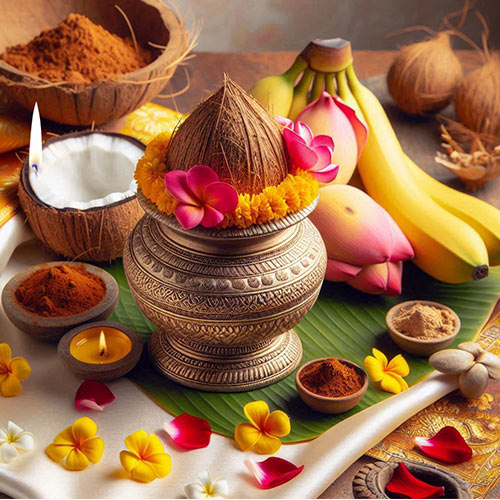
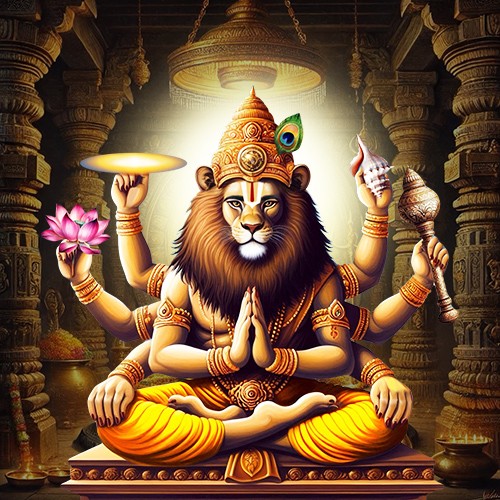
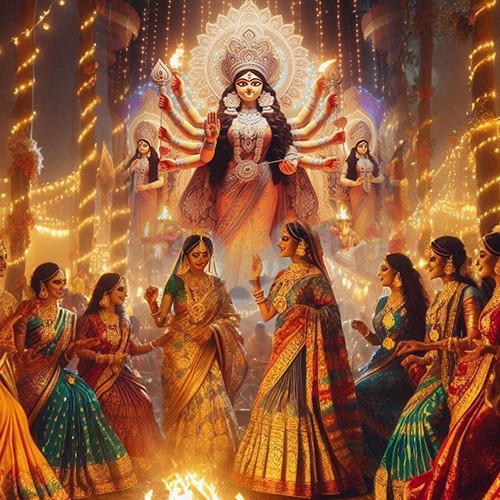
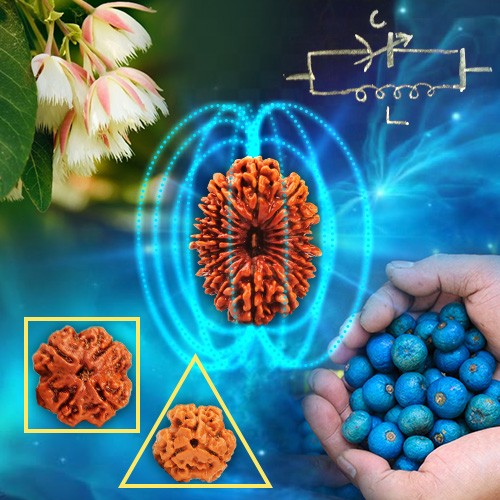

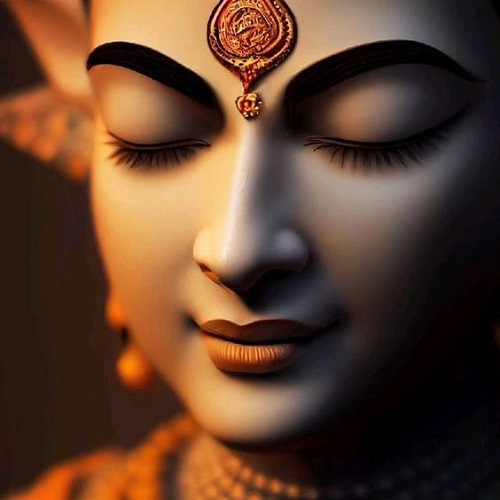
.jpg)
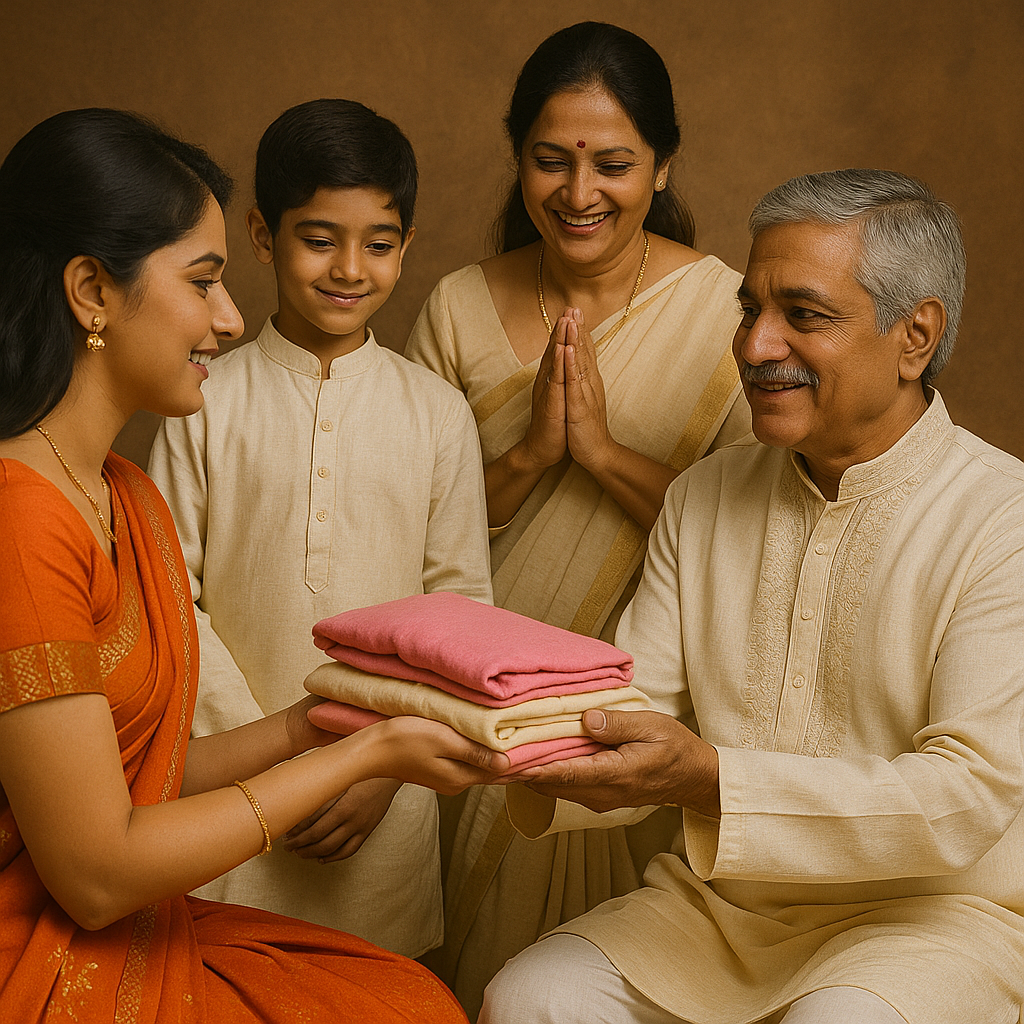
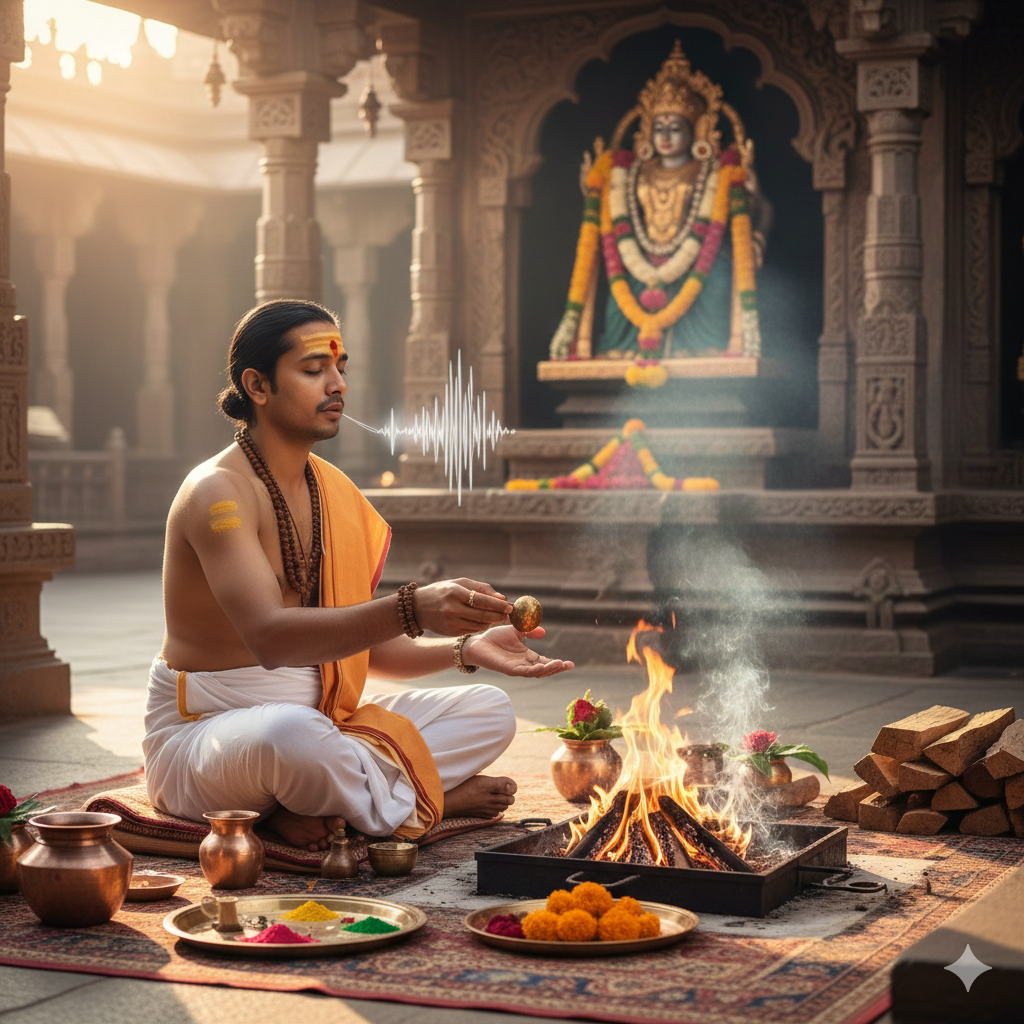
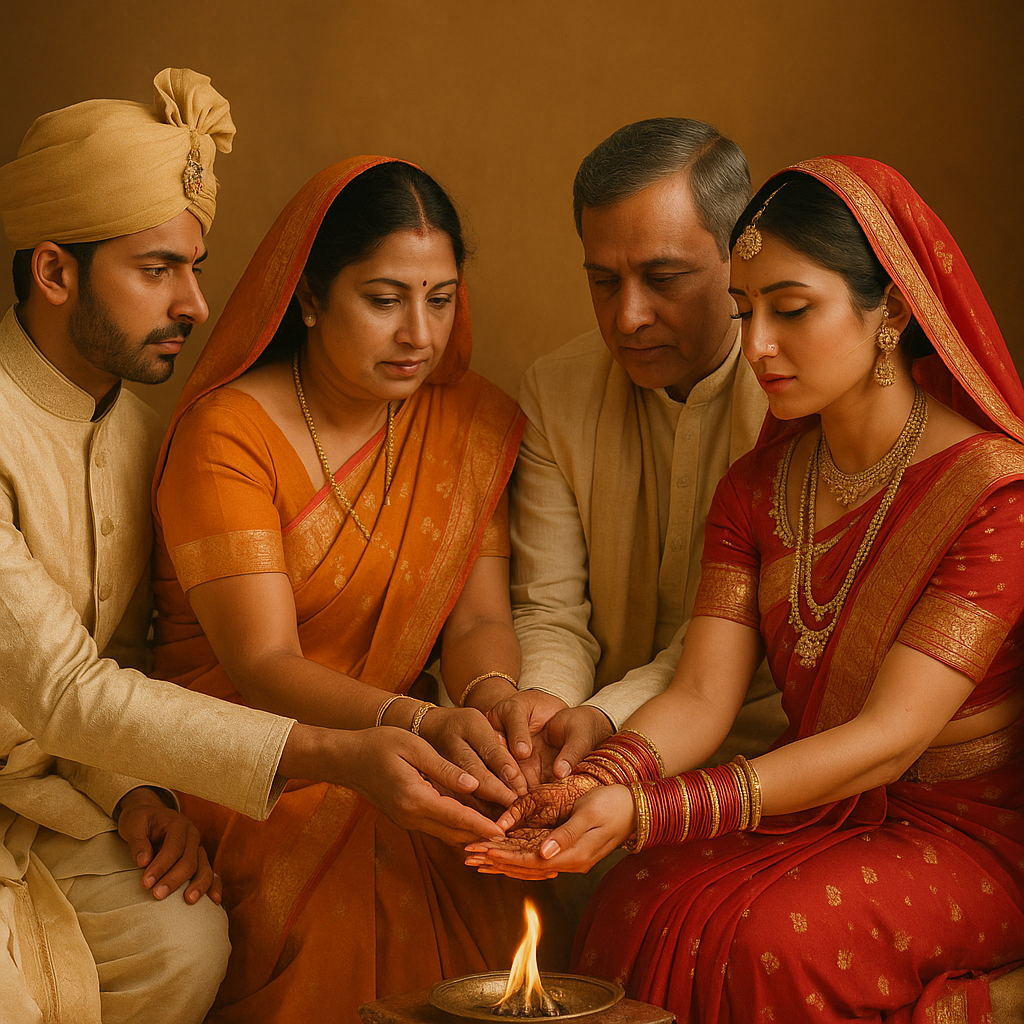
Comments 0
Leave your thought here